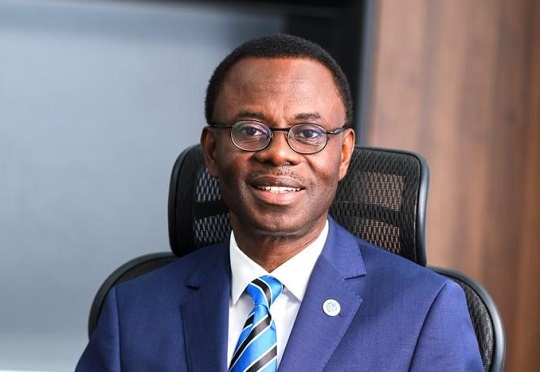There appears to be good news in the offing for businesses seeking patient capital to fund long-term projects, as the National Investment Bank (NIB) is poised to turn its attention toward the nation’s industrialisation drive.
This was disclosed by the bank’s Managing Director, Samuel Sarpong, in an exclusive interview with the B&FT when he gave an insight into the path his outfit is set to tread this year and for many years to come as part of its transformation agenda.
With access to low-cost, long-term capital remaining the primary source of frustration for industries, Mr. Sarpong stated that his outfit will be returning to what he describes as its core mandate of providing businesses, particularly those engaged in manufacturing, with a number of facilities.
Chronicling businesses the bank has helped establish and support in its almost 60 years of existence – including Nestle Ghana, Nexus Cable, Accra City Hotel (formerly Novotel) and Aluwork – he said: “We are going to go back to funding industrialisation, and our objective is to become the premier partner for industries in Ghana. We are thus transforming into a specialised bank focused on financing industry… that is the ultimate goal”.
He added that the bank will maintain a retail arm to provide general commercial and universal banking services, especially to those in the industrial value chain – suppliers, customers etc. – but will skew its portfolio toward long-term facilities for industry.
“We are skewing our lending and portfolios to industries. We will maintain a retail arm because we will be a bank for the entire value chain, from the suppliers of the industries that we finance to the distributors and the customers; and these companies also have employees and customers so we will have retail end. We are not getting out of it, but we will skew our operations toward funding industries,” he said.
The MD stated that the bank will be judicious in its disbursement of loans, so that the gains realised from recent reforms will not be eroded but, rather, consolidated. As such, the bank will pay particular attention to its recruitment process, as a lot rises and falls on having the right personnel to execute its goals.
In a similar vein, he argued strongly against the notion that government institutions, NIB being one of them, cannot be profitable; and stated that with the right leadership structures and adequate checks and balances, the fortunes of many state-owned enterprises would change.
“I think it is a matter of having the right leadership and the right governance framework,” he pointed out.
The change in business strategy, he noted, forms a list of measures the bank is undertaking in its transformational journey. Other measures include relocating the bank’s Head Office to the Airport City banking hub to increase its accessibility and visibility, as well as an aggressive cultural reset aimed at empowering employees to be assertive and prioritise the corporate good.










